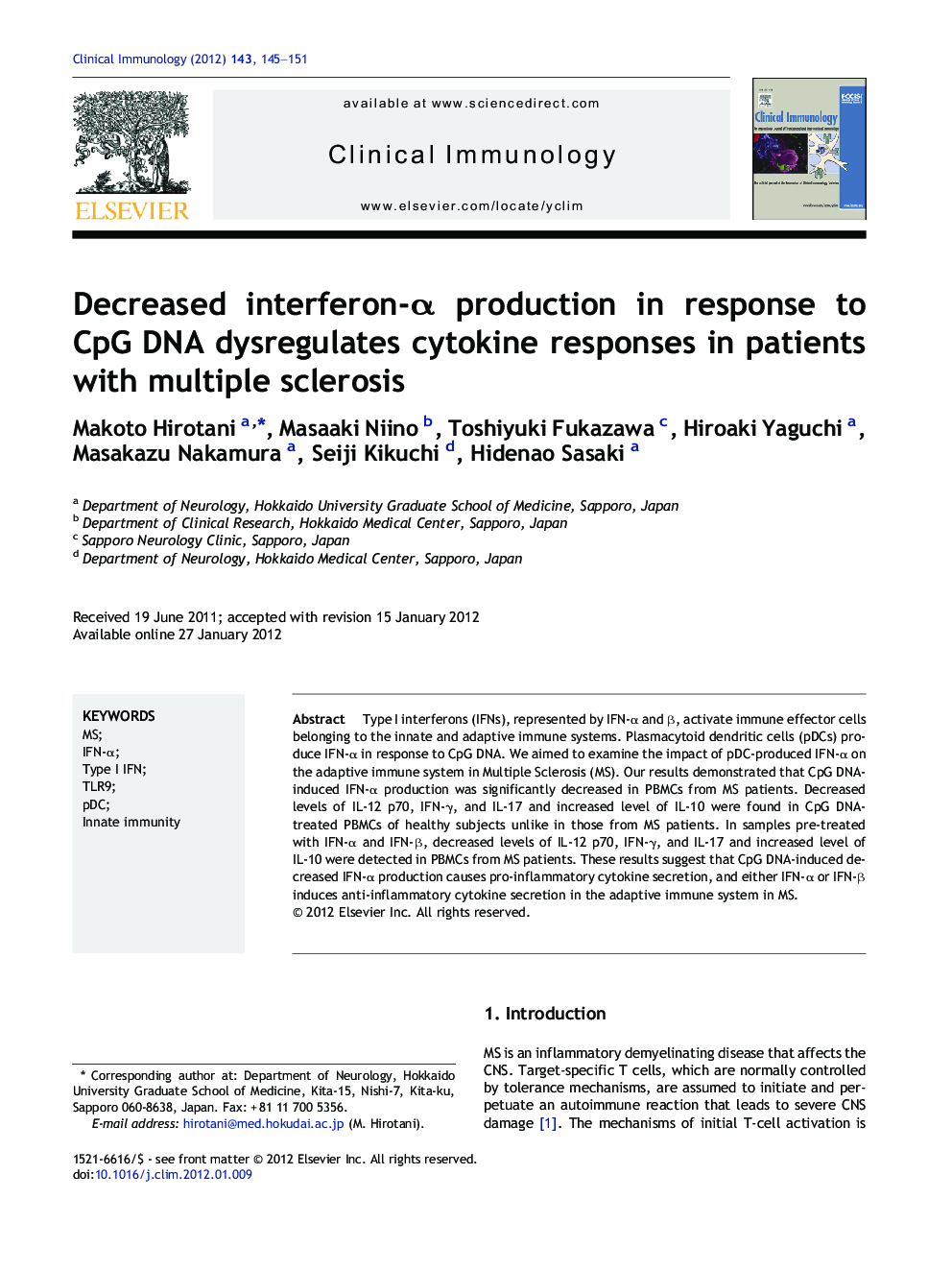| Article ID | Journal | Published Year | Pages | File Type |
|---|---|---|---|---|
| 6087746 | Clinical Immunology | 2012 | 7 Pages |
Type I interferons (IFNs), represented by IFN-α and β, activate immune effector cells belonging to the innate and adaptive immune systems. Plasmacytoid dendritic cells (pDCs) produce IFN-α in response to CpG DNA. We aimed to examine the impact of pDC-produced IFN-α on the adaptive immune system in Multiple Sclerosis (MS). Our results demonstrated that CpG DNA-induced IFN-α production was significantly decreased in PBMCs from MS patients. Decreased levels of IL-12 p70, IFN-γ, and IL-17 and increased level of IL-10 were found in CpG DNA-treated PBMCs of healthy subjects unlike in those from MS patients. In samples pre-treated with IFN-α and IFN-β, decreased levels of IL-12 p70, IFN-γ, and IL-17 and increased level of IL-10 were detected in PBMCs from MS patients. These results suggest that CpG DNA-induced decreased IFN-α production causes pro-inflammatory cytokine secretion, and either IFN-α or IFN-β induces anti-inflammatory cytokine secretion in the adaptive immune system in MS.
⺠We examined the impact of IFN-α on the adaptive immunity in multiple sclerosis. ⺠CpG DNA-induced decreased IFN-α production causes pro-inflammatory conditions. ⺠Type I IFN supplement induces anti-inflammatory conditions in multiple sclerosis.
